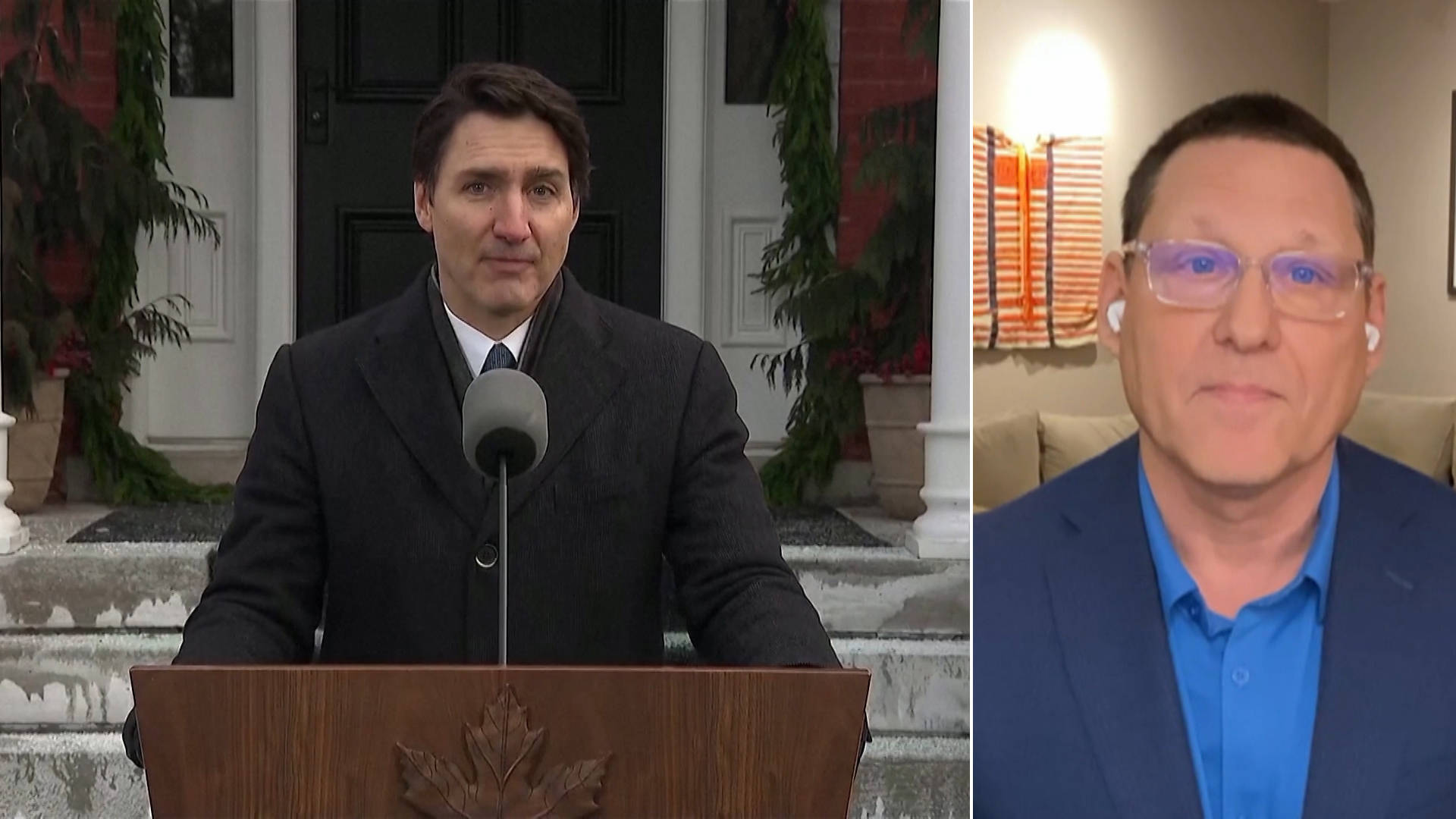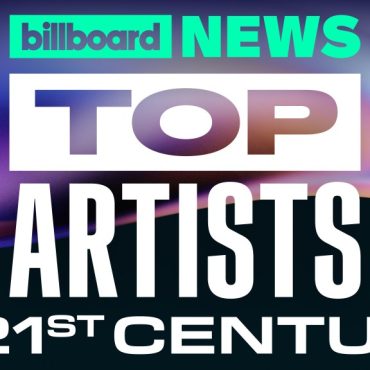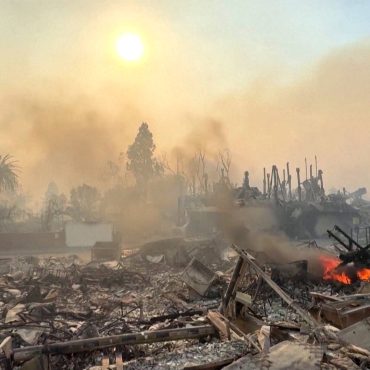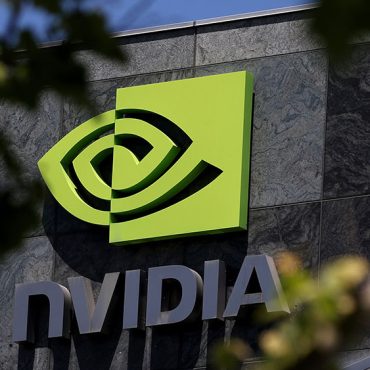This is a rush transcript. Copy may not be in its final form.
AMY GOODMAN: This is Democracy Now!, democracynow.org, The War and Peace Report. I’m Amy Goodman.
After nearly a decade in power, Canadian Prime Minister Justin Trudeau announced Monday he’s stepping down as leader of Canada’s Liberal Party. His resignation comes amidst rising discontent over his leadership and growing dissent within his government.
PRIME MINISTER JUSTIN TRUDEAU: I intend to resign as party leader, as prime minister, after the party selects its next leader through a robust, nationwide, competitive process.
AMY GOODMAN: Justin Trudeau has been Canada’s prime minister since 2015 but faced plummeting popular support, as well as opposition within his own party. His finance minister, Chrystia Freeland, resigned last month amidst a public dispute over how to respond to Trump’s vow to impose a 25% tariff on Canadian goods. Freeland is considered one of the possible successors to Trudeau, as is the close ally Dominic LeBlanc, who was appointed to replace Freeland in December. Canada is scheduled to hold federal elections this year, and polls indicate Canada’s Conservatives would win elections if they were held today. The Conservative leader, Pierre Poilievre, who’s been compared to Donald Trump, has pushed anti-labor, anti-regulation measures and called for expanding oil and gas development.
At his news conference Tuesday, President-elect Trump, who has repeatedly mocked Canada as America’s 51st state, threatened to use economic force to absorb Canada into the United States.
REPORTER: Are you also considering military force to annex and acquire Canada?
PRESIDENT–ELECT DONALD TRUMP: No, economic force, because Canada and the United States, that would really be something. You get rid of that artificially drawn line, and you take a look at what that looks like. And it would also be much better for national security. Don’t forget, we basically protect Canada. But here’s the problem with Canada. So many friends up there.
AMY GOODMAN: Trump continued his push Tuesday evening, posting maps on social media showing Canada as part of the United States, while Trudeau responded, saying there isn’t “a snowball’s chance in hell” that the two countries will join.
For more on Prime Minister Trudeau, Canadian politics and the future of U.S.-Canada relations, we’re joined by Avi Lewis, Canadian documentary filmmaker, activist, also candidate in Canada’s upcoming federal election, running for the New Democratic Party in Vancouver Centre.
Thanks so much for joining us, Avi. Can you talk about the significance of what’s happening, the resignation of Prime Minister Trudeau, and President Trump threatening to absorb Canada?
AVI LEWIS: Amy, it’s great to be back with you. It’s been too long.
We’ve had an eventful series of weeks here in Canada. I think, as of last weekend, I was the last person in Canada who still thought that Justin Trudeau would run in the next election. He clearly still believes he is the only person who can lead his party, but he’s been down 10 or 20% in the polls for a year and a half. He’s faced, as you said, an uprising in his own party. And just like Joe Biden, he waited way too long, and his — I think his ego got in the way. And now he’s finally admitted that he can’t do it. And there will be a chaotic scramble and a leadership race, and I think we’ll definitely face an election in the spring.
So, Canada is in turmoil right at a time when we have a very consequential showdown with your president-elect, and our Pierre Poilievre, our polite Canadian Trump in a T-shirt, is way ahead in the polls. And so, we’re going to have a very intense and very important debate in Canada about integration with the United States. I mean, the irony here, Amy, as you know and have covered for decades, is that the whole point of Canadian-American so-called free trade, the Canada-U.S. free trade deal first in 1988 and then NAFTA and following deals, have been to integrate our economies, to give the United States unfettered access, particularly to our oil. And, you know, by the free trade — so-called free trade treaties, we’re not allowed to reduce oil exports to the United States by any significant way — obviously, a problem in a time of climate emergency. But there’s already immense integration between our economies. And obviously, these tariffs that Trump has been threatening would be absolutely brutal for working families on both sides of the border and would make — would reignite the inflation crisis and the cost-of-living crisis. So, that’s the political debate we’re having now.
As far as Trump, you know, threatening the usual stuff, it’s a little bit of a balancing act. We have to take it seriously, but we can’t overreact. That’s what a bully wants, to send people running in fear. We don’t take the bait here. And I’m proud that the New Democratic Party leader, Jagmeet Singh, is the only Canadian political leader who’s talking about retaliatory tariffs in response to this latest cartoon threat, which is how it will have to play out.
But we should look at how this fits into a pattern with Trump. He’s a grabber. He wants to grab Panama. He wants to grab Greenland. He grabs women. For him, the whole point of power is to use it. Using force as an expression of his own power is the way he’s conducted his personal life, is the way he’s conducted his business life. And now he doesn’t understand why he can’t use the U.S. military and the U.S. economy the same way.
So, it is a real threat, and Canadians should get mobilized to fight it, especially to protect our water, because he talked in the fall about turning on this huge faucet and having access to Canada’s water. And to get back to the free trade agenda that Conservatives and Liberals have implemented to the immense harm of working people in Canada over the last decades, it was always about water. And both Conservatives and Liberals in Canada were prepared to put water on the table. And only the New Democratic Party and social movements, incredible civil society organizations have risen again and again to stop the sale of our water.
AMY GOODMAN: Would you say, if there were an election held today, that the Conservatives would win, but because of what Trump is saying right now, you know, talking about absorbing Canada, and not relenting on this, that that could put the Conservatives at a disadvantage?
AVI LEWIS: I mean, I certainly hope so. They’re way up in the polls. But it’s an incredibly volatile time in Canada. And, you know, honestly, Amy, that’s why I’m stepping up and running for office right now, which is not — you know, it’s not an easy thing to do. It’s filled with contradictions. But, you know, I think my grandpa said it best. My grandfather, David Lewis, was leader of the federal NDP in the early ’70s. And the early ’70s were a time much like this, an inflation-driven cost-of-living crisis. Just like today, the right was blaming immigrants and poor folks, people without work or housing who were living on the street, saying it was the welfare bums to blame for our problems. And my grandpa, David Lewis, said, “You know who’s to blame? The corporate welfare bums.” He said, “Big business and government are holding hands in your pocket.”
And we’re very much in the same place today. Like, every sector of the economy is dominated by a handful of huge corporations, led by billionaire CEOs, and they are shoveling the people’s wealth into their own pockets as fast as their soft, lily-white hands can move. In Canada, we’ve got five big banks making extraterrestrial profits, whether the interest rates are up or down. We’ve got five big oil companies who have captured government. They were gifted a $34 billion pipeline, that the people paid for, while Big Oil has used its influence and capture of government to block any meaningful climate action. We’ve got three big telecom corporations, which is why we have the most expensive and crappiest cellphone service and data service in the world. We’ve got three big supermarket chains, plus Walmart and Costco, who are price fixing, colluding to keep charging 10 bucks for butter even though inflation is down. In the States, you just had Potatogate, where the two big potato companies are the subject of a class-action lawsuit for fixing the price of tater tots. Like, Amy, is nothing sacred in this time of corporate welfare bums?
And then there are more and more people who are working for Big Tech platforms in the gig economy, that have turned us, our lives, our intimate lives, and the value we create into a commodity that their algorithms mine for profits, like the big real estate companies use algorithms to jack up the rent, which in a city like Vancouver is just too damn high. So, you’ve got an Uber driver working 12 or 14 hours in their own car, at their own expense, just working for the app on their phone, and the Big Tech bro behind it to steal more than half the value they create.
So, the right wing is right. There is a small elite that’s responsible for the fact that you work and work and work and still can’t afford a decent home, nice food and a vacation once in a while. But it’s them. In Canada, the Conservative Party is the party of billionaires, the ultrarich, the corporate welfare bums. But it doesn’t have to be this way. And that’s the beautiful thing about elections. And as we head into this next chaotic period in Canada, it’s important to remember that elections are a time when the people have the power to decide, when we get to throw the corporate welfare bums out.
AMY GOODMAN: Before —
AVI LEWIS: But what we vote for — yeah, go ahead, Amy.
AMY GOODMAN: Before we end, I wanted to ask you about Jimmy Carter. His state funeral is taking place in National Cathedral in Washington Thursday, which President Biden has declared a national day of mourning. He died December 29th at the age of 100. When he was inaugurated in 1977, Carter fulfilled a campaign promise to pardon those who resisted the Vietnam War draft. He issued Proclamation 4483 on his first full day in office. Avi Lewis, many American war resisters fled to Canada, your homeland, among them your father-in-law, Naomi Klein’s father. During an interview in 1999, Carter reflected on his decision to pardon Vietnam draft resisters, many of them conscientious objectors.
AVI LEWIS: Yeah, I mean, you know, I think it was a moving — it has been a moving moment in Canada. Obviously, lots of bad things happen under any American president, and we’ve had a healthy debate about, you know, things that the American Empire did under Jimmy Carter that were not to be celebrated. But, you know, actually turning down the thermostat and putting solar panels on the White House and saying, “Hey, if it’s cold, put on a sweater,” commonsense forecasting of the climate emergency to come and the energy emergencies that have been serial in the period of climate breakdown and fossil fuel dominance, that was really memorable.
His pardoning of the war resisters of Vietnam — I mean, that was a generation of 35,000 idealistic young people. There were doctors. There were professionals and others, like Naomi’s dad, who came and helped us build our single-payer universal healthcare system. And that’s — you know, talking about Trudeau now, part of his legacy is that since the pandemic, the privatization of healthcare in Canada has been absolutely terrifying. You can now pay 150 bucks to get on the phone with a doctor in Canada. And that’s what the draft dodger generation and the ’70s generation, that nostalgia that we have for Carter, that was when we really built up our public healthcare system. And we have to fight now the corporate welfare bums and the rising right to rescue that vision of taxing the super rich and using that money to build back our universal public services, so that people can go to the doctor, and to complete the dream of — Tommy Douglas’s dream of Canadian healthcare, our grandfather, our socialist grandfather of universal Medicare, to include eyes and teeth and mental health and medicine in the vision of universal healthcare.
AMY GOODMAN: And we’re going to have to leave it there. Of course, Tommy Douglas, the grandfather of the actor Kiefer Sutherland.
AVI LEWIS: There you go.
AMY GOODMAN: Avi Lewis, Canadian documentary filmmaker and activist, also a candidate in Canada’s upcoming federal election, running for the New Democratic Party, the NDP, in Vancouver Centre.
Up next, the Pentagon has released 11 men from Guantánamo — they’re from Yemen — to Oman. We’ll speak with two lawyers involved with their cases. Back in 20 seconds.
[break]
AMY GOODMAN: “Deep Water” by Ed Askew. The singer-songwriter passed away Saturday at the age of 84.











Post comments (0)